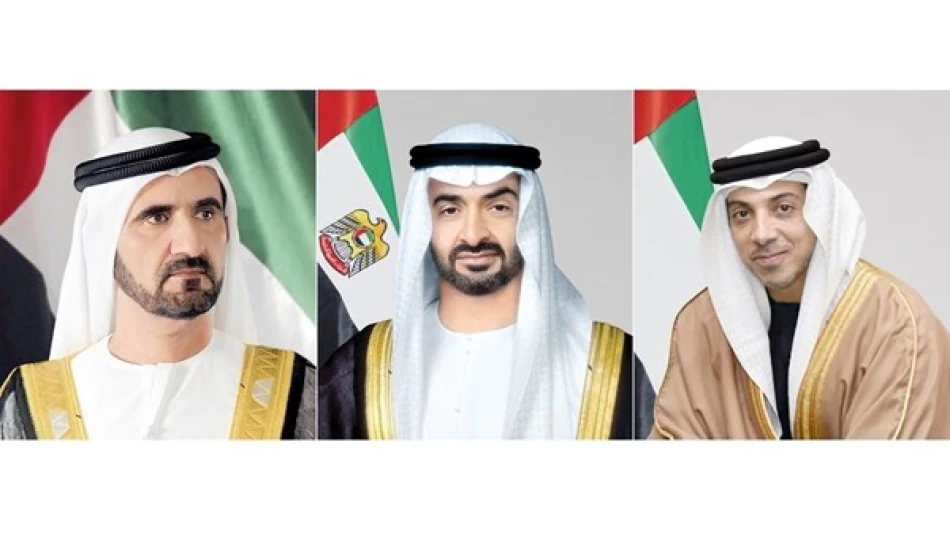
UAE Leaders Offer Condolences to Kuwait's Emir on the Passing of Sheikha Saad Abdullah
UAE Leadership Extends Condolences to Kuwait Following Royal Family Loss
The United Arab Emirates' top leadership has sent formal condolences to Kuwait following the death of Sheikha Suad Abdullah Al-Ahmad Al-Sabah, underscoring the deep diplomatic ties between the two Gulf nations. The gesture reflects the continued strength of inter-GCC relationships amid regional challenges and demonstrates the personal bonds that underpin Gulf cooperation.
High-Level Diplomatic Outreach
UAE President Sheikh Mohammed bin Zayed Al Nahyan sent a condolence cable to his Kuwaiti counterpart, Sheikh Mishal Al-Ahmad Al-Jaber Al-Sabah, expressing sincere sympathies over the loss of the royal family member. The message conveyed heartfelt condolences and genuine consolation during this period of mourning.
The diplomatic outreach extended beyond the presidency, with Vice President and Prime Minister Sheikh Mohammed bin Rashid Al Maktoum, who also serves as Dubai's ruler, sending similar condolences. Sheikh Mansour bin Zayed Al Nahyan, Deputy Vice President and Deputy Prime Minister, also dispatched formal sympathies to the Kuwaiti Emir.
Strengthening Gulf Unity Through Personal Diplomacy
This coordinated response from the UAE's highest officials illustrates how personal relationships continue to shape Gulf diplomacy. Such gestures carry particular weight in a region where family ties and traditional protocols remain central to statecraft, even as these nations navigate complex geopolitical challenges.
Regional Context and Significance
The formal condolences come at a time when Gulf Cooperation Council nations are working to maintain unity while managing diverse regional pressures. Kuwait and the UAE have historically maintained strong bilateral relations, with both countries often coordinating on regional security matters and economic initiatives.
This diplomatic courtesy also reflects the broader tradition of Gulf royal families maintaining close personal relationships that transcend political boundaries. Such connections have proven valuable during regional crises, providing informal channels for dialogue and cooperation that complement official diplomatic mechanisms.
Implications for Gulf Relations
While ceremonial in nature, these expressions of sympathy reinforce the stability of UAE-Kuwait relations and demonstrate the continuing importance of traditional diplomatic protocols in the Gulf region. For investors and regional observers, such displays of unity signal the underlying strength of GCC cooperation frameworks, which remain crucial for regional economic and security coordination.
The synchronized response from multiple UAE leaders also showcases the emirate's commitment to maintaining strong ties with all Gulf neighbors, a strategy that has served the UAE well in positioning itself as a regional diplomatic hub and business gateway.
Most Viewed News

 Layla Al Mansoori
Layla Al Mansoori






